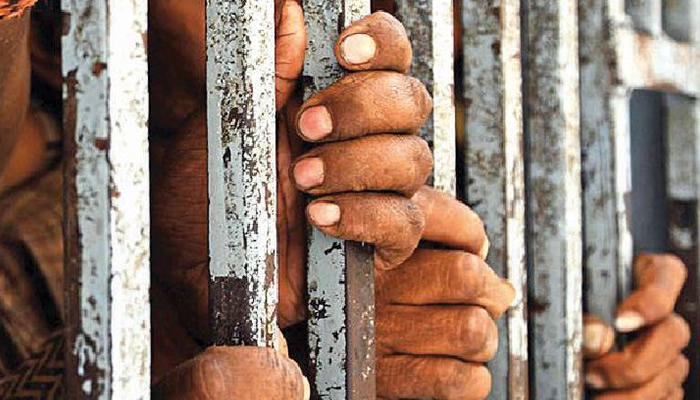Xiaomi: The Chinese smartphone giant taking on Tesla

Xiaomi, a major Chinese smartphone manufacturer, is making its debut in the electric vehicle (EV) market with the Speed Ultra 7 (SU7), priced below 500,000 yuan.
Positioned to rival Tesla and BYD, the SU7 leverages Xiaomi’s ecosystem of devices and shared operating system. Manufactured by a BAIC Group unit in Beijing, Xiaomi aims to capitalize on China’s robust EV market with a $10 billion investment over the next decade.
However, it enters a competitive landscape marked by a price war, as Tesla and local competitors slash prices. Xiaomi’s approval as a new player contrasts with the challenges faced by others seeking entry.
Nevertheless, uncertainties persist, with Nio revising delivery forecasts downward and governments worldwide scrutinizing subsidies and trade practices in the EV sector.
Joe Lieberman, former vice presidential candidate, dies at 82

Former US Senator and vice presidential candidate Joe Lieberman has passed away at 82 due to complications from a fall, according to a family statement.
Lieberman, representing Connecticut for nearly 25 years, made history as the first Jewish person on a major party US presidential ticket in 2000 alongside Al Gore. Throughout his career, he was known for his centrist stance, occasionally diverging from his party, including on the Iraq War, and winning his final term as an independent in 2006.
As the chairman of No Labels, he advocated for a third-party presidential ticket in 2024, stressing the need for political rebellion to revitalize the system.
Born in Stamford, Connecticut, Lieberman’s political journey began in state politics before his tenure in the US Senate, where he championed bipartisan collaboration and played a crucial role in ending the Pentagon’s Don’t Ask, Don’t Tell policy. His passing signifies the end of an era in American politics, characterized by his dedication to country over party and his commitment to unity and progress.
Lawsuit accuses Chicago doctor of abusing more than 300 women over decades

A lawsuit accuses two top Chicago hospitals of ignoring complaints from over 300 Latina women who were allegedly sexually abused by an OB-GYN.
The suit claims the hospitals concealed the doctor’s behavior for years, allowing him to abuse more patients. Patients reported unnecessary exams and intrusive questioning about their sex lives. Despite complaints to hospital staff and even the police, the abuse continued unchecked.
The majority of victims were Latina and Spanish speakers, targeted because the doctor spoke Spanish. The lawsuit has brought painful memories for many victims, highlighting the need for accountability and improved safeguards in healthcare institutions.
Four killed during stabbing spree in Illinois

Four people were killed and five injured in a knife rampage in Illinois. The victims included a 15-year-old girl, a 63-year-old woman, a 49-year-old man, and a 22-year-old man. A 22-year-old suspect has been arrested. Motive remains unclear.
In another report, over 1 billion meals are wasted daily while nearly 800 million people suffer from hunger worldwide. In 2022, 1.05 billion metric tons of food were wasted, with households accounting for 60% of it. Food waste contributes significantly to climate change and poses a global development issue. Despite improved data collection, monitoring remains patchy, with only 21 countries including food loss and waste in their national climate plans.
Dachshunds under threat as Germany proposes ban on breeding

Germany’s cherished dachshund faces a potential threat as a new draft law aims to prohibit breeding dogs with skeletal anomalies. The proposed Animal Protection Act targets “torture breeding,” potentially impacting breeds prone to health issues like the dachshund, German shepherd, schnauzer, and beagle. Notable dachshund lovers include Napoleon Bonaparte and Pablo Picasso, while Waldi became the first official Olympic mascot in 1972.
Critics, like dachshund breeder Kerstin Schwartz, find the reform outrageous, arguing it threatens Germany’s cultural heritage. Marion Michelet, chairwoman of a dachshund kennel club, believes the law is exaggerated and could harm breeding as a whole. The German Kennel Club has launched a petition to save beloved breeds, gathering over 15,000 signatures.
The agriculture ministry denies aiming to ban specific breeds, emphasizing the goal to end torture breeding. They aim to protect animals from long-term suffering. However, details of the regulations are still under discussion.
Kerstin Schwartz, a dachshund breeder, expresses concern over the potential impact on breeders adhering to longstanding standards. She hopes the ban won’t materialize, fearing significant repercussions for breeders like herself.
The cost of a Ramadan iftar meal around the world

During Ramadan, Muslims worldwide gather for iftar, breaking their fast with dates and water before enjoying traditional meals. With 1.9 billion Muslims globally, rising food prices have impacted Ramadan dishes. Al Jazeera compared ingredient prices in 14 countries.
Argentina faces high inflation, with food costs up 303% from last year. A single serving of their iftar meal now costs 7,200 pesos ($8.4), over four times the 2023 price.
Australia’s multicultural landscape influences its iftar, with a halal snack pack as a staple. This year, it costs about 12.5 Australian dollars ($8.1), up from 11 Australian dollars ($7) last year.
Bosnia and Herzegovina’s iftar includes pita krompiruša and topa. This year, it costs about 2.9 BAM ($1.6) per serving, up from 2.7 BAM ($1.5) last year.
Egyptian iftar features grape leaves, molokhiya soup, and kunafa. This year, a serving costs about 68 Egyptian pounds ($1.4), up from 39 Egyptian pounds ($0.8) in 2023.
India’s iftar offers ghugni, pakora, and suji halwa. This year, it costs about 149 rupees ($1.8) per serving, down from 162 rupees ($1.9) last year due to a drop in onion prices.
Indonesia’s bubur, bakwan, and kolak pisang make up its iftar. This year, it costs about 66,600 rupiah ($4.2) per serving, up from 62,600 rupiah ($3.9) last year.
Malaysia’s iftar includes beef rendang, sayur lodeh, and seri muka. This year, it costs about 6.9 ringgits ($1.5) per serving, up from 6.4 ringgits ($1.3) last year.
Nigeria’s iftar features jollof rice, moi moi, and fresh fruit salad. This year, it costs about 6,500 naira ($4.4) per serving, up from 3,860 naira ($2.6) last year.
Pakistan’s iftar offers dahi baray, fruit chaat, and jalebi. This year, it costs about 172 rupees ($0.6) per serving, up from 141 rupees ($0.5) last year due to high inflation.
Palestine’s iftar includes maklouba, dagga, and katayif. This year, it costs about 31.5 shekels ($9) per serving, up from 28.5 shekels ($8) last year.
South Africa’s iftar offers pap en vleis, chakalaka, and koeksisters. This year, it costs about 77 rand ($4.0) per serving, up from 68 rand ($3.6) last year.
Turkey’s iftar includes dolma, cacik, and muhallebi. This year, it costs about 60.5 lira ($1.9) per serving, up from 50.6 lira ($1.6) last year.
In the UK, iftar may include oven-roasted chicken and fruit yoghurt. This year, it costs about 2.2 pounds ($2.7) per serving, up from 2.1 pounds ($2.6) last year.
In the US, iftar features oven-roasted chicken, fattoush salad, and kunafa. This year, it costs about $7.1 per serving, up from $6.7 last year.
Former Spanish FA Boss, Luis Rubiales Facing Almost 3 Years Imprisonment Over Kissing Scandal

Spanish prosecutors are seeking a two-and-a-half-year prison sentence and a €100,000 fine for Luis Rubiales, the former Spanish football chief, over the “kissgate” scandal involving international player Jenni Hermoso during the 2023 Fifa Women’s World Cup. Rubiales allegedly forcibly kissed Hermoso and embraced other players, leading to his removal from office. His trial, prompting his mother’s hunger strike in his defense, is imminent.
The £86,000 fine would compensate Hermoso. Prosecutors advocate for a one-year sentence for sexual assault and an 18-month sentence for alleged coercion to garner public support.
Judge Francisco de Jorge found evidence suggesting the kiss was non-consensual. Rubiales faces a separate corruption investigation related to a deal with Saudi Arabia for hosting the Super Cup.
While LaLiga President Javier Tebas supports the match in Saudi Arabia, Rubiales remains in the Dominican Republic but plans to return to Spain soon.
China lifts penalties on Australian wine after more than three devastating year

China has decided to lift punishing tariffs on Australian wines, ending a three-year ordeal that severely impacted the industry and strained bilateral relations. The Ministry of Commerce cited changes in the wine market conditions as the reason for the decision, effective immediately, with tariffs as high as 218% being scrapped. This move comes after a five-month review period agreed upon by both countries, during which Australia suspended a dispute at the World Trade Organization.
The Australian government welcomed Beijing’s decision, acknowledging the critical timing for the wine industry. The tariffs, imposed in 2020, rendered Australian wine exports to China economically unviable, causing significant losses for producers. The removal of these tariffs marks a thaw in China-Australia relations, with Beijing gradually easing trade barriers on key Australian exports like barley, timber, and coal.
Australian winemakers celebrated the decision, relieved after years of uncertainty and revenue losses. However, the industry faces challenges of oversupply and reduced global demand. Despite the positive outlook for re-entering the Chinese market, diversifying export markets remains a priority for long-term sustainability.
The diplomatic thaw between China and Australia follows a period of strained relations, exacerbated by issues of national security and foreign investment, as well as Australia’s call for an inquiry into the origins of the COVID-19 pandemic. Dialogue and negotiations between the two countries have led to improved bilateral relations, highlighted by diplomatic visits and efforts to address ongoing concerns, such as human rights issues and remaining trade barriers.
China’s decision to lift wine tariffs reflects efforts to stabilize relationships with key trade partners amidst economic challenges. While this marks a positive step, ongoing discussions are needed to address remaining points of tension and ensure a mutually beneficial trade relationship between China and Australia.
NASENI targets 25% reduction in import bill by 2030

The National Agency for Science and Engineering Infrastructure (NASENI)aims to cut import bills by 25% to $34.7bn by 2030 by partnering to manufacture top 10 items locally, potentially creating over 3 million jobs and lifting 2.5 million people out of poverty within five years, as per Executive Vice Chairman Khalil Halilu.
NASENI emphasizes technology transfer to boost the economy, noting a 66% increase in imports to $60.5bn over four years, with 10 categories accounting for 77% of imports, while SMEs contribute only 6.21% to exports.
Halilu highlights the need for rapid technology transfer to drive economic growth, aiming to reduce go-to-market time by 75%, cutting production time from three years to six months to one year.
NASENI collaborates with the Rural Electrification Agency to deploy renewable energy technologies, securing a $150m investment for a battery factory from the UAE, and plans to refurbish broken-down police trucks and state government tractors, potentially saving billions annually.
France to sue teen for falsely accusing school head in headscarf row

France’s prime minister has announced legal action against a teenage girl for falsely accusing her headteacher of hitting her during a dispute over her wearing an Islamic head-covering. The headteacher resigned due to death threats following the incident, emphasizing the seriousness of Islamist threats to French schools since the murders of two teachers. In the altercation, the headteacher asked three female pupils to comply with French law by removing their head coverings. While two complied, the third refused, leading to the confrontation.
Despite no evidence of physical assault, the headteacher faced online death threats prompting police intervention and support from the education minister. Prime Minister Gabriel Attal condemned the false allegations, affirming support for educators combating breaches of secularism and Islamist influence in schools. Politicians across the spectrum criticized the hate campaign’s impact on the teacher’s career and lamented governmental failures to protect schools.
Meanwhile, bomb threats targeted several Paris schools, reminiscent of previous threats accompanied by beheading videos, possibly linked to a Russian disinformation campaign targeting French support for Ukraine, as warned by the prime minister earlier.




